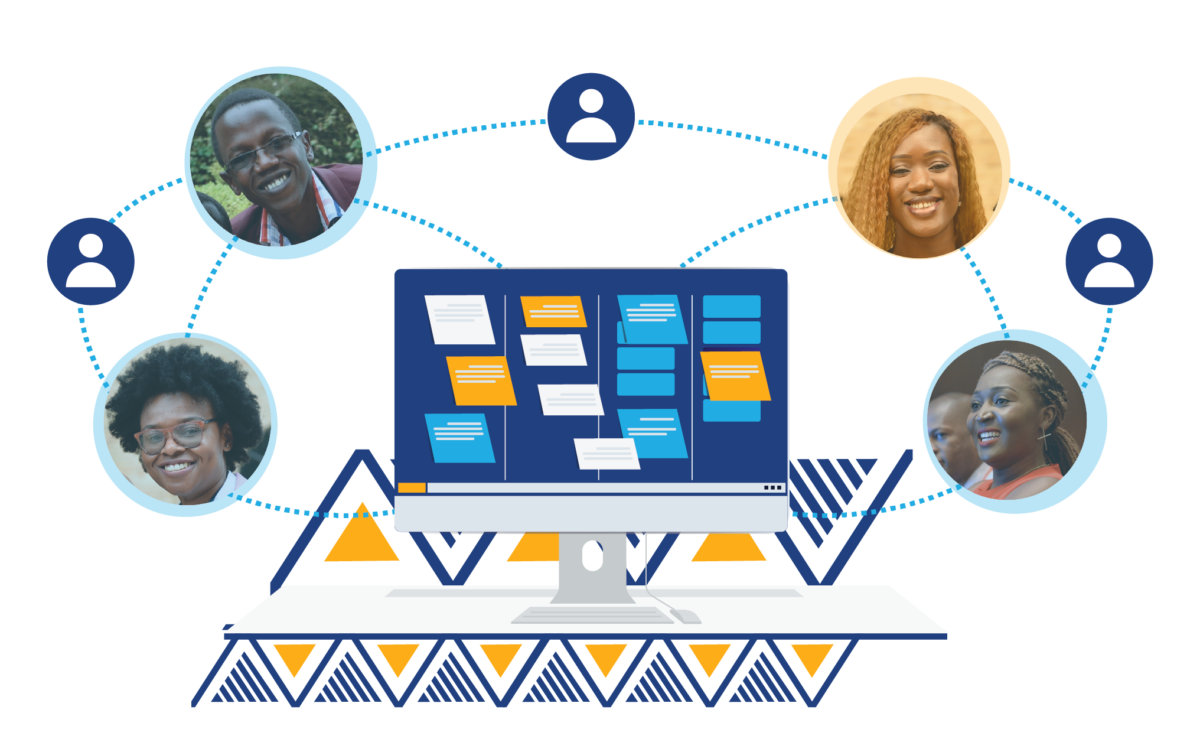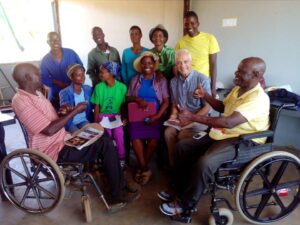Virtual Programming
To support Alumni’s continued leadership development and strengthen their access to networks and resources, the Fellowship leverages stakeholder and partner expertise to deliver a suite of virtual programming, available on the Fellowship Portal.

Level-Up Chats
Level-Up Chats provide Alumni with unique access to influential thought leaders and technical experts in an interactive digital format. In addition to boosting Alumni’s professional knowledge and competitiveness in the global marketplace, Level-Up Chats give partners a direct, interactive platform to engage with Alumni and build relationships. They further provide Alumni with a platform to showcase their own expertise by serving as speakers and panelists. Past Level-Up Chats have included open virtual live events and targeted closed sessions via webinars, often designed to complement specific Fellowship courses or other programming.
Watch previous Level-Up Chats:
- Workplace Equity and Inclusion: Takeaways from the 2023 PDEs
- Mapping the DNA of an Idea
- Navigating the New Information Landscape: Resilience to Disinformation
Knowledge Networks

Knowledge Networks are thematic groups formed around a specific topic or challenge in Sub-Saharan Africa, and they provide a platform for long-distance collaboration that empowers members to embrace shared challenges and opportunities. Knowledge Networks may include Fellowship and Reciprocal Exchange Alumni or Leadership Institute or PDE host staff. Designed and customized in partnership with participants, tools available to Knowledge Networks may include a LinkedIn group, marketing via the Fellowship Focus newsletter and social media, and other tailored resources.
Learn more about Knowledge Networks.
Interested in Forming a Knowledge Network?
Complete the Knowledge Network Interest Form.
Virtual Courses

After completing their Fellowships, Alumni have access to the Fellowship’s full library of virtual courses on Canvas via the Fellowship Portal. By completing these online courses, Alumni can earn badges and certificates, sharable on professional platforms like LinkedIn. Course content is asynchronous and can be completed at the participant’s own pace and on their desired timeline, though some may have synchronous components like a Level-Up Chat.
Fellowship Alumni can log into the Fellowship Portal to access the full virtual course library. Courses include:
- Data for Leaders | Developed in partnership with IREX’s Data for Leaders curriculum, this course will teach Alumni to turn data into action, weighing data with other considerations like values, biases, impact, and empathy.
- Grants Management | Developed by the U.S. African Development Foundation (USADF), this workshop helps Alumni improve their grant management skills, helping them manage awards well and setting themselves up for future success.
- Leading in a Crisis | Collection of courses developed with Institute Partners on key topics to help the Fellowship Network navigate global crises, like public health, disinformation, resilience, and business strategy.
- Leading in a Changing Paradigm | Collection of courses developed with Institute Partners on moving forward after a crisis, including digital storytelling, conflict resolution, collaborative governance, and crisis planning.
- Navigating the New Information Landscape | Based on IREX’s Learn to Discern curriculum, this course equips Alumni with key skills and tools for navigating today’s information ecosystem, including media ownership and independence, social media and incentive structures, human cognitive and emotional biases, and the concepts of dis- and misinformation.
- Protection and Resilience: A Holistic Approach to Digital, Physical, and Psychosocial Safety | Developed in collaboration with IREX’s Securing Access to Free Expression (SAFE) team, this course teaches Alumni knowledge, skills, and tools to more resiliently manage and mitigate risks they face in their day-to-day work and personal lives.
- Mapping the DNA of an Idea: Visualizing a New Business, Social Venture, Product, or Service | Developed by Fellowship partner Globalstratos, this course helps Alumni take a nascent idea through its life cycle, developing it into a mature concept and moving it forward as a venture.